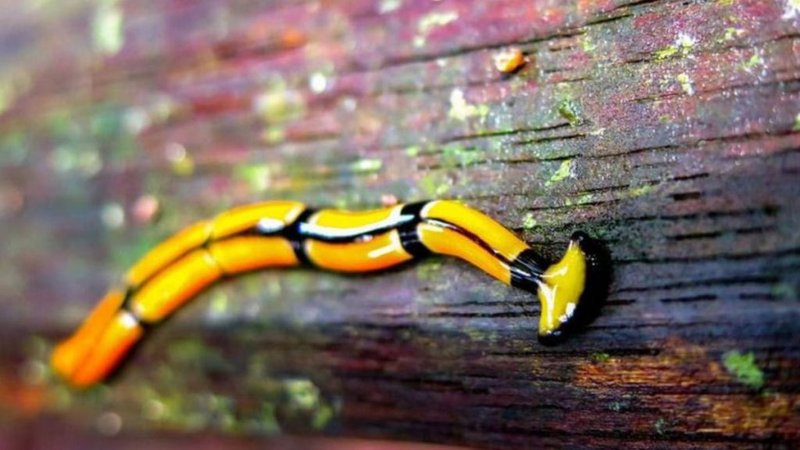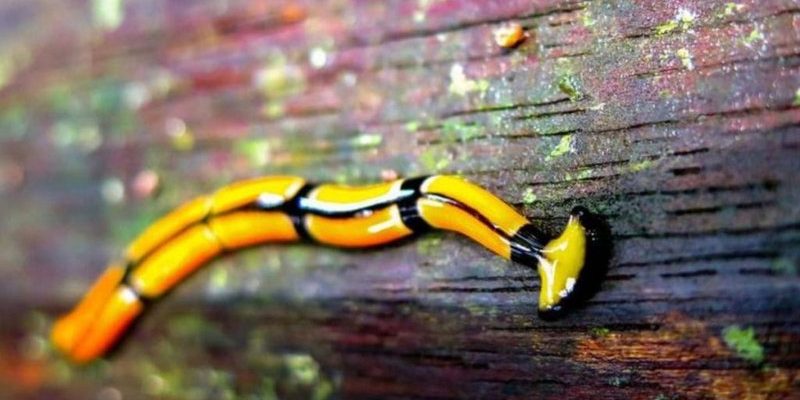
In this article, we’ll dive into the world of hammerhead worms and their natural enemies. We’ll explore how these predators can help keep the hammerhead worms in check, making your garden a thriving habitat for plants and beneficial creatures alike. So, let’s grab a coffee and break this down—after all, the more we know about these natural pest controllers, the better we can support a healthy ecosystem.
What Are Hammerhead Worms?
Before we discuss their predators, let’s take a closer look at what hammerhead worms are. These creatures belong to the family **Bipalium**, and their most distinctive feature is their unique head shape, which resembles a hammer. Typically found in tropical and subtropical regions, they thrive in moist environments like gardens and flower beds.
Hammerhead worms are known for their voracious appetite. They primarily feed on earthworms, which are essential for soil health. While these worms might look intriguing, their impact on your garden can be detrimental. You might be wondering, “How do I know if I have them?” Look for their flattened bodies, which can grow up to 12 inches long, and often come in colors like brown or gray.
Understanding their behavior helps us appreciate the role of natural predators. Just like how a garden needs sunshine and water to grow, it also requires a balance of species to thrive. That’s where nature’s pest control agents come in.
Introducing Natural Predators
Now that we’ve set the stage, let’s talk about the fantastic natural predators of hammerhead worms. Nature has gifted us with a range of creatures that help keep these worms in check. Using these predators not only helps control the hammerhead worm population but also promotes a balanced ecosystem.
Here’s a list of some of the main players in this natural drama:
- Birds: Many bird species love to snack on worms, including hammerhead worms.
- Frogs and Toads: These amphibians are excellent hunters of both insects and worms.
- Snakes: Certain snakes will hunt down these flatworms with ease.
- Insects: Some predatory beetles and ants have been observed munching on these worms.
Each of these predators brings its own strengths to the table. Let’s take a closer look!
Birds: Nature’s Garden Guardians
When it comes to controlling hammerhead worms, birds are your best friends. Many birds have an impressive ability to find and eat these flatworms. Species like robins, blue jays, and sparrows often hunt for this delicacy, turning your garden into their buffet.
Birds are particularly effective because they have keen eyesight and can spot these worms even when they are hiding. By attracting more birds to your garden, you can harness their natural hunting instincts. Simple steps like adding bird feeders or bird baths can help. Here’s the thing—when birds feel welcome in your yard, they’ll come back regularly, and you’ll benefit from their pest control efforts.
Incorporating native plants can also encourage more bird activity. Birds love diverse habitats, and plants that produce berries or seeds can provide additional food sources. It’s like rolling out the red carpet for your feathered friends!
Amphibians: The Silent Predators
Next up, let’s talk about frogs and toads. These amphibious creatures often lurk in the shadows, waiting for the perfect opportunity to snag their next meal. You might not see them very often, but they play a significant role in controlling hammerhead worms.
Frogs and toads are not just cute; they have a hearty appetite for these pests. Their slimy, long tongues are perfect for snatching up worms. If you’ve got a pond or a moist area in your garden, you might already have some of these helpful predators.
To attract frogs and toads, consider adding a small water feature. Even a simple puddle can do wonders! Make sure to include some rocks or plants where they can hide during the day. It’s a win-win: your garden gets extra pest control, and you get the joy of watching these enchanting creatures.
Snakes: The Unseen Hunters
Many people have a natural fear of snakes, but they can actually be beneficial to your garden. Certain species, like garden snakes, will help control the hammerhead worm population. They might not be the beloved pets we cherish, but they play a vital role in maintaining balance in the ecosystem.
Snakes are stealthy and have a natural skill for hunting down worms and other small creatures. You might not see them every day since they often stay hidden, but when they do appear, it’s a good sign your garden is thriving.
If you’re worried about unwanted snake encounters, create a diverse garden environment. The more natural habitats you provide, the more chances snakes will have to hunt without disrupting your activities. They’re nature’s way of keeping certain pests at bay while keeping your garden healthy!
Insects: The Tiny Champions
You might be surprised to learn that some insects are formidable predators of hammerhead worms. Certain beetles, ants, and even spiders have been reported to munch on these pests. These tiny champions might not look imposing, but they contribute significantly to pest management.
Insects can often be found in the soil or leaf litter, where they can easily locate hammerhead worms. Ants, for example, are known for their teamwork. They’ll work together to carry off smaller worms. By promoting healthy soil and plant diversity, you can foster a thriving insect community in your garden.
Encouraging beneficial insects can be as simple as planting a variety of flowers. Many plants attract pollinators, but they also provide habitats for predatory insects. Here’s the thing: a healthy insect population can act like a security team for your garden, swooping in to tackle pests before they become a problem.
Creating a Balanced Ecosystem
Now that you know about the natural predators of hammerhead worms, how can you help create an ecosystem that supports them? A healthy garden isn’t just about removing pests; it’s about building an environment where beneficial creatures can thrive.
Here are some simple tips to promote a balanced ecosystem in your yard:
- **Plant Native Species**: Native plants attract local wildlife and provide food and shelter for predators.
- **Avoid Chemicals**: Pesticides can harm beneficial insects and predators. Try using natural pest control methods instead.
- **Create Habitats**: Add birdhouses, water features, or leaf piles to encourage wildlife.
- **Diversity is Key**: Mix different plants and flowers to attract a variety of predators.
By making small changes, you can transform your garden into a haven for both plants and animals. It’s like being the host of a fantastic party where everyone enjoys themselves, and there’s enough food to go around.
In summary, hammerhead worms can be a challenge for gardeners, but nature provides us with a toolbox of natural predators that can help keep them at bay. From birds and amphibians to stealthy snakes and hardworking insects, these allies are essential to maintaining a healthy ecosystem.
So, next time you encounter a hammerhead worm in your garden, remember that you’re not alone in this fight. By nurturing and attracting these natural predators, you can create a vibrant space where plants can thrive without being overwhelmed by pests. It’s all about working in harmony with nature. Happy gardening!

